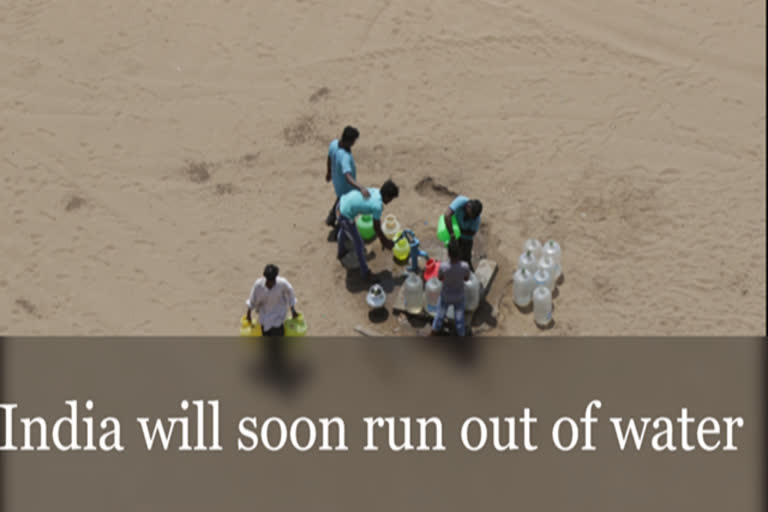New Delhi: A dire water crisis is awaiting us. Drinking water resources are becoming scarce due to various reasons. Unless we stay alert and take necessary measures, it might be difficult to find a mouthful of water to gulp. The severity of water scarcity faced by Tamil Nadu and Maharashtra last summer is well known.
If the governments don’t take up the water conservation issue seriously, India might become one of the countries to wage water wars by 2022. Gajendra Singh Shekhawat, Minister of Jal Shakti said that the citizens and government are equally responsible for this crisis.
He further added that Indians only talk about rights but never about duties. Shekhawat’s claims that Chennai and Bengaluru might turn into another Cape Town cannot be denied.
Cape Town has experienced the firsthand effects of global warming and climate change. The 2017-18 water crisis in which 40 lakh residents had no water supply for days together is a lesson to the world. Due to water shortage, the city’s residents were supplied only 50 litres per day, which an average American uses for his daily shower. Rewards were announced to those who would save water by not washing clothes.
The government asked the restaurants, shops and public toilets to stop water consumption. Municipalities had cut off the water supply for months on end in the name of Zero Day. To keep a check on water wastage, Water Police raided homes and levied heavy fines.
When sea temperatures in the tropical Pacific Ocean rise to above-normal levels, the climate pattern is called El Nino. Due to El Nino’s effect, the temperatures rose and clouds moved inland. As a result, South Africa, which is synonymous with greenery faced severe famine. Reservoirs could not meet the water demands. Once an example of water management, Cape Town suffered from water scarcity. The local governments failed in meeting the water demands of an increasing population. This is one of the adverse effects of climate change.
Cape Town is a port city on South Africa’s southwest coast. It is one of the biggest cities in the world. It is where Nelson Mandela was once held in prison. Every year, 20 lakh tourists visit Cape Town.
Tourism alone brings USD 330 crore to the economy making it the major source of income. 5-star hotels, beautiful beaches, splendid ports, cable cars, island resorts, bicycle races, cricket, rugby are some of the tourist attractions here. But with the looming water crisis, all these luxuries prove futile. Tourism was hit due to the water scarcity and economy slowed down. Years of development was washed away with a drop of water.
One might feel indifferent towards the crisis in Cape Town but it is an alarm bell to the nations worldwide. Sao Paulo in Brazil is on the verge of severe water scarcity and so is Bengaluru. Beijing, Cairo and Moscow are no better. We are aware of the Chennai water crisis.
Even today, the residents are dependent on water tanks in the city. At the time of Independence, per capita, water availability was 5,000 cubic meters which fell to 1,540 in 2018. We are cutting down forests and encroaching upon lakes in the name of development.
The monsoons are erratic. Even if the rains are on time, there are no rainwater harvesting plans. As a result, there is a critical fall in the groundwater levels. Mission Kakatiya and Mission Bhagiratha initiated by the Telangana government are rays of hope in such dire circumstances.
Though water constitutes about 70 per cent of Earth, only 3 per cent of it is fresh water. The world population is 800 crores. At least one crore people are living without access to water. 270 crore people are barely surviving due to shortage of water.
500 cities worldwide, which include a few Indian cities are on the brink of the water crisis. Year on year, the quantity of rainfall is reducing. Consequently, agricultural produce is affected. Rivers are turning into drains.
If a river is encroached upon, the tributaries and surrounding lakes will gradually die. In the wake of climate change, water conservation and management are of utmost importance. The responsibility must be shared by people along with governments. Every citizen must do their part to ward off the emerging crisis.
Read: All women cab service in Indore to ensure safe night rides



